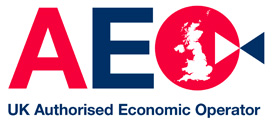Streamlining Your Supply Chain for Optimal Efficiency
Grasping the Intricacies of Your Supply Chain
To begin the process of streamlining, you need to recognise the complexities within your supply chain. These complexities can arise from various sources, such as an extensive network of international suppliers or convoluted distribution channels. Identifying these complexities is crucial for making strategic simplification choices.
Complex supply chains can negatively impact your business by driving up costs, reducing flexibility, and leading to mistakes that affect customer satisfaction. Tackling these complexities through a structured approach not only trims expenses but also bolsters the resilience of your business operations.
Tactics for a More Efficient Supply Chain
Centralising Supply Chain Functions
Centralising procurement, logistics, and distribution processes is an impactful way to simplify your supply chain. This strategy enhances control and visibility over your entire operation.
Advantages of centralisation:
- Decreased administrative costs
- Uniform procedures and policies
- More leverage in supplier negotiations
- More efficient communication channels
To centralise your supply chain functions, you should start by merging your supplier base where feasible and employing a centralised procurement system accessible to all relevant departments.
Merging Shipments
Merging multiple orders into one can lead to savings on per-package rates and might allow you to negotiate volume discounts. This tactic is especially beneficial for businesses that dispatch large quantities of goods. Consider using logistics providers that offer consolidation services to simplify this process and discover the most economical shipping options.e.
Implementing Technology and Automation
The use of technology is a reliable method for cutting down on manual labour, which complicates supply chain management. Automation and supply chain management software are effective in reducing errors and allowing your staff to concentrate on strategic initiatives.
For instance, research by ModusLink has demonstrated that effective planning and adaptable operations, supported by appropriate technology, assist supply chains in scaling and tackling challenges such as spikes in seasonal demand. Technology investments can lead to faster responses and more vigorous growth.
Streamlining Supplier Relationships
A streamlined supply chain often involves working with a reduced number of dependable suppliers. Managing a smaller set of suppliers makes it simpler to manage relationships and uphold quality standards.
Developing strategic partnerships with these suppliers can result in sustained efficiency improvements. Collaborative relationships with suppliers can create a supply chain that is more responsive and flexible.
Data-Driven Decision Making
Data plays a vital role in contemporary supply chain management. Accurate, up-to-date data facilitates decisions that ensure a smooth supply chain operation.
Employ systems capable of collecting and processing data at all points in your supply chain to take advantage of data's benefits. This information can assist in forecasting demand, managing inventories more effectively, and identifying possible disruptions before they happen.
Enhancing Demand Forecasting and Inventory Control
Precise demand forecasting is essential for efficient inventory management. Better demand predictions help prevent surplus inventory and the associated costs.
Inventory optimisation tools aid in achieving an ideal inventory balance, satisfying customer demand without excess investment in stock. Real-world examples from Establish Inc. highlight the benefits of improved inventory management, resulting in cost savings and enhanced service levels.
Sustainable Supply Chain Practices
Adopting sustainable practices in your supply chain benefits the environment and can lead to significant cost savings and improved brand reputation. Strategic decisions that minimise environmental impact position your supply chain as responsible and progressive.
The Environmental Protection Agency (EPA) showcases success stories of companies reducing greenhouse gas emissions through supply chain engagement. These case studies illustrate how sustainable practices can be woven into supply chain management, leading to cost reductions and an enhanced corporate social responsibility profile.
Continuous Improvement and Flexibility
A streamlined supply chain distinguishes itself through its capacity for ongoing adaptation and enhancement. Regular evaluations and adjustments ensure efficiency and effectiveness despite market fluctuations.
Operational flexibility enables quick responses to unforeseen challenges. Case studies on supply chain operations from ModusLink demonstrate how companies can accommodate demand surges without compromising delivery times or costs
Cultivating a continuous improvement culture involves training your team to spot inefficiencies and innovation opportunities. It's about giving employees the power to propose changes that improve supply chain performance.
Measuring the Impact of Simplification
Understanding the advantages of supply chain simplification requires measuring its impact. Key performance indicators (KPIs) like inventory turnover rates, order accuracy, and delivery times provide insights into efficiency gains.
Tracking these KPIs before and after simplification strategies implementation will show the extent of cost savings and performance improvements. Real-world examples from Establish Inc. offer concrete evidence of the positive outcomes of supply chain simplification.
Conclusion
Streamlining your supply chain management is a comprehensive process that can yield significant benefits for your business. By centralising processes, embracing technology, consolidating suppliers, utilising data effectively, and managing inventory wisely, you can forge an efficient and resilient supply chain. Adopting sustainable practices and encouraging continuous improvement will ensure your supply chain's readiness for future challenges. Assessing these changes through relevant KPIs will help you recognise the value of your efforts in streamlining your supply chain. As you refine your operations, you'll not only reduce costs but also improve service levels and strengthen your competitive edge.
JPLS are now offering Procurement Services for its customers. To find out more about this new service please click here for more information.








